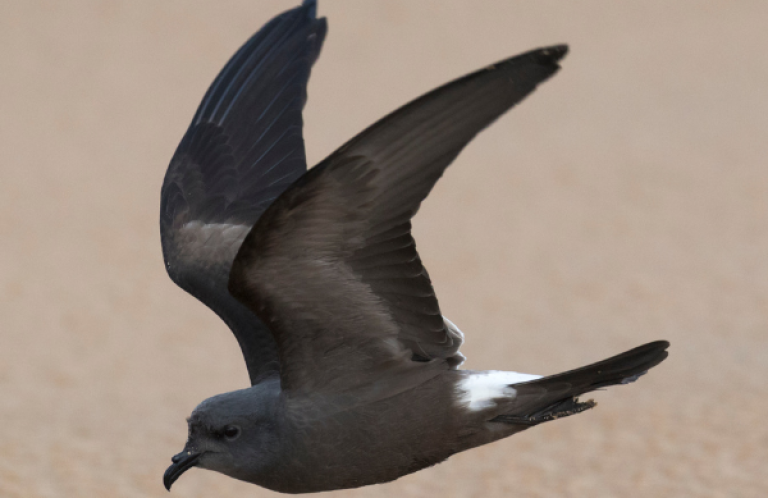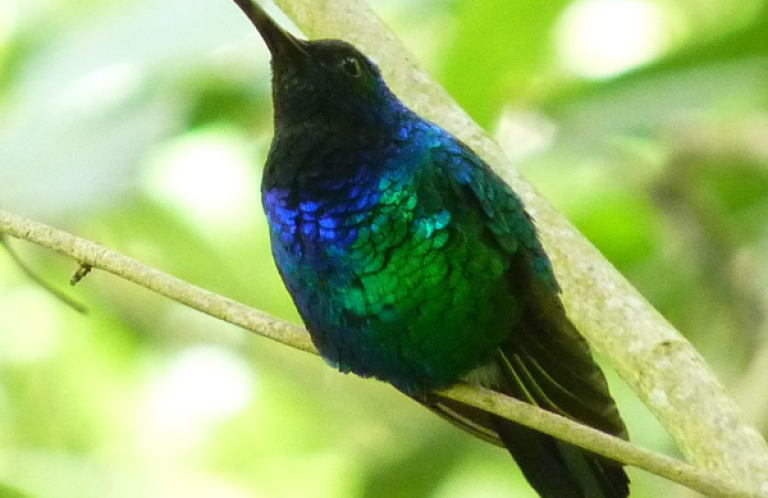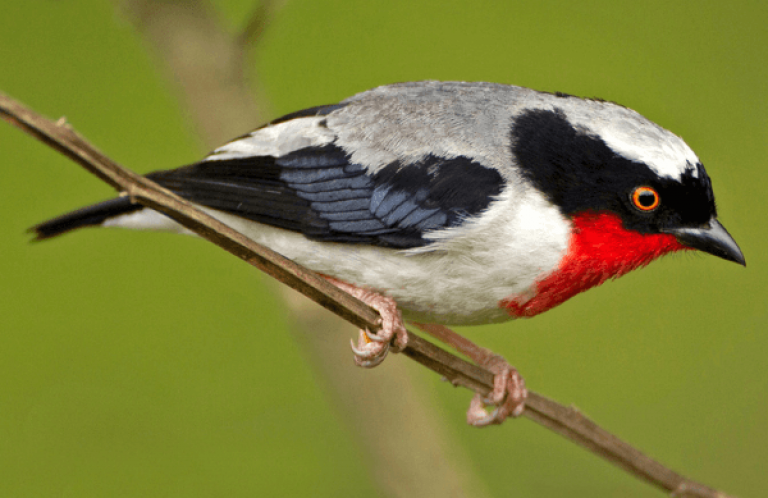New Fund Aims to Prevent Extinction of Earth's Rarest Species
Media Contact: Jordan Rutter, Director of Public Relations| jerutter@abcbirds.org | @JERutter

The Araripe Manakin is one of the ultra-rare bird species that will benefit from the new Alliance for Zero Extinction Initiative. The bird is found only in a small swath of habitat in Brazil. Photo by Ciro Albano
(Washington, D.C., September 16, 2021) The Alliance for Zero Extinction (AZE), an international consortium of conservation groups, is launching a $12-million, five-year initiative that aims to direct funding to endangered species that are at serious risk of extinction. The effort will focus on effectively conserving AZE-designated sites, which have been identified as places that hold the last-remaining populations of Earth's most threatened plants and animals, such as the Anosy Mouse Lemur of Madagascar, the Thorny Tree Frog of Vietnam, and the Araripe Manakin and Lear's Macaw, found only in Brazil.
“Protecting or otherwise conserving these sites is essential to preventing species extinctions,” says Mike Parr, Chair of AZE and President of American Bird Conservancy (ABC). “The sole populations of Earth's most endangered species are found in 853 AZE sites globally — an area covering less than 0.2 percent of the globe.”
Contributing the initial $10 million to this initiative, Rainforest Trust seeks to expand protection of these important sites for biodiversity. “There has never been a better nor more urgent time to save these species from extinction,” says James Lewis, Vice President of Conservation at Rainforest Trust. “Resources are being mobilized and governments are making commitments to biodiversity conservation at the World Conservation Congress and Convention on Biological Diversity. There is a particular focus on protected areas right now with inspiring initiatives such as 30×30, a commitment by governments to protect 30 percent of their land and seas by 2030. These efforts are absolutely critical for our planet's wellbeing, and we must ensure that AZE sites are seen as a top priority.”
AZE sites are a subset of Key Biodiversity Areas (KBAs) that are urgently in need of effective conservation to prevent species extinctions. A recent study showed the effectiveness of protecting AZE sites to avoid extinctions. However, 36 percent of AZE sites remain completely uncovered by protected areas — despite evidence that creation and management of protected areas for ultra-rare species is the conservation action most critical to reducing extinction risk.
Many organizations and institutions have made great strides in protecting AZE species over the past few years. The AZE initiative seeks to expand the effective conservation of AZE sites globally, through protected-area establishment, Other Effective Area-based Conservation Measures (OECMs) declaration, or other means.
“This pledge to direct $12 million towards AZE sites demonstrates the critical value of global partnerships,” says Lewis. “We hope in the coming months to grow this commitment and engage the global community in effectively protecting these sites. This is a clear call to action, to communities, conservationists, governments, and global funders — we have an incredible opportunity to turn the table for these species, so let's not lose it.”
###
American Bird Conservancy is a nonprofit organization dedicated to conserving wild birds and their habitats throughout the Americas. With an emphasis on achieving results and working in partnership, we take on the greatest problems facing birds today, innovating and building on rapid advancements in science to halt extinctions, protect habitats, eliminate threats, and build capacity for bird conservation. Find us on abcbirds.org, Facebook, Instagram, and Twitter (@ABCbirds).
Since 1988, Rainforest Trust has been safeguarding imperiled tropical habitats and saving endangered species by establishing protected areas in partnership with local organizations and communities. With its partners, Rainforest Trust has safeguarded more than 37 million acres of vital habitat across Latin America, Africa, Asia and the Pacific. Rainforest Trust is a nonprofit organization that relies upon the generous support of the public to successfully implement its important conservation action. The organization is proud of earning a 4-star rating from Charity Navigator. Learn more about the work of Rainforest Trust by visiting www.RainforestTrust.org, Twitter, Instagram, TikTok or Facebook.


















































